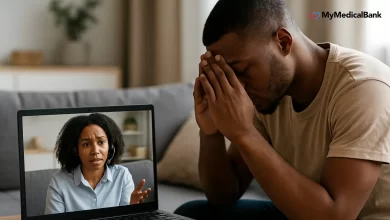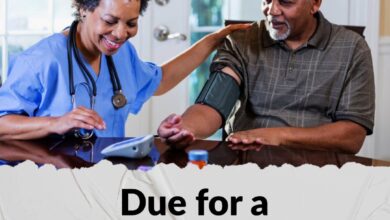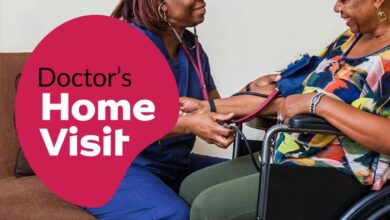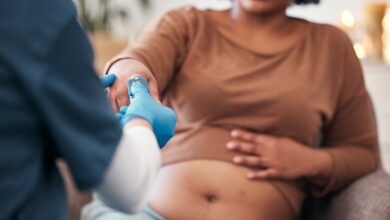Helps for Victims of Domestic Abuse in Nigeria

The internet in Nigeria has been agog in the last few days with the tragic stories of some women who lost their lives to domestic abuse in the hands of their own husband.
Perhaps the most shocking was that of a popular gospel singer, 42-year old Osinachi Nwachukwu who was widely reported to have died in an Abuja hospital on Friday April 8, 2022 following years of domestic abuse inflicted on her by husband.
What made Osinachi’s story more emotive was her great singing talent coupled with her deep public religious commitment. Many could simply not reconcile how such a talented figure could have been a silent victim of domestic abuse.
Many other trending stories have since reinforced the fact that the problem is far more widespread than most people are aware of or are willing to admit. In a survey commissioned by the CLEEN Foundation, 1 in every 3 respondents admit to being a victim of domestic violence.
Notwithstanding the devastating impact of domestic abuse on victims, many people remain in abusive relationships for different reasons including consideration for their children, financial dependence, fear of the unknown, the cycle of abuse and religious and cultural beliefs, among others.
What Is Domestic Abuse?
According to the United Nations, domestic abuse, also called “domestic violence” or “intimate partner violence”, can be defined as a pattern of behaviour in any relationship that is used to gain or maintain power and control over an intimate partner.
In essence, abuse is physical, sexual, emotional, economic or psychological actions or threats of actions that influence another person. This includes any behaviours that frighten, intimidate, terrorize, manipulate, hurt, humiliate, blame, injure, or wound someone.
The United Nations also asserts that domestic abuse can happen to anyone of any race, age, sexual orientation, religion, or gender. What this means is that although women are by far more affected, men too can be victims of domestic abuse.
Not only that, domestic abuse does not only occur among the married, it also occurs among non-married couples living together, dating or courting. Put succinctly, abuse does not have to occur within the home to be ‘domestic abuse’, rather it occurs within a relationship.
Domestic abuse can take the form of emotional abuse, sexual abuse, social abuse, physical abuse, financial abuse, or spiritual abuse.
Identifying Signs of Domestic Abuse
There are several signs of Domestic abuse even though it is not always obvious. Oftentimes it occurs before resulting in domestic violence. Domestic abuse is about controlling someone’s mind and emotions first before physical abuse or violence starts to occur.
- Being afraid of your partner. There should be no place for fear in a healthy relationship.
- Your partner bullies, threatens, or controls you for instance accuses you of having an affair or threatens to kill you or to kill someone close to you, or throws things when angry.
- If your partner controls your finances or denies you access to money to meet your basic needs.
- A partner is being cut off from family and friends or being embarrassed in front of others, and it makes you want to avoid people. In the case of the late Osinachi, her mother disclosed in an interview with BBC after her death that the husband denied her access to her daughter for a period of time.
- Your partner physically abuses you, for instance abandoning you in a place you don’t know, attacks you with weapons, hits you or locks you in or out of your house.
- When you’re sexually abused, your partner presses you into things you’re not ready for.
- If your partner makes you feel like you can’t make decisions or puts down your accomplishments.
Health Impacts
Domestic abuse has a considerable impact on the health and well-being of victims, and that of their children. In a particular survey, most women who survive domestic abuse reported that they had experienced mental or emotional problems as an effect of the abuse.
Impact on Physical Health
The direct and immediate physical effects of domestic violence include injuries such as bruises, cuts, broken bones, lost teeth and hair, miscarriage, stillbirth and other complications of pregnancy.
Physical abuse can cause or worsen many chronic (long-lasting) health problems, including heart problems, hypertension, asthma, epilepsy, migraine, skin disorders chronic pain syndromes, central nervous system disorders and digestive problems.
In particular women who are abused are more likely to develop depression, anxiety, or eating disorders. Women who are abused may also misuse alcohol or drugs as a way to cope of food.
Impact on Mental Health
Domestic abuse also has an enormous effect on the mental health of victims. The abuse has significant psychological consequences for victims, including anxiety, depression, suicidal behaviour, low self-esteem, inability to trust others, flashbacks, sleep disturbances and emotional detachment.
Consequences of domestic abuse include increased incidences of depression, anxiety, post-traumatic stress disorder (PTSD), and suicide. The abuse may lead to increased use of alcohol, drugs, and other substances. A particular survey reveals that16% of victims report that they have considered or attempted suicide as a result of the abuse, and 13% report self-harming.
Another study conducted in England shows that between 30% and 60% of psychiatric in-patients had experienced severe domestic abuse.
Social Consequences
Victims of domestic abuse particularly women often experience social isolation. They miss work and lose their jobs more often, and this, in turn, diminishes household earning capacity and socioeconomic level.
It is important to mention that Domestic abuse victims consume more health care resources, and they visit hospitals and mental health facilities more often. In many cases, their children suffer abuse physically, mentally, and socially as well.
Studies have shown that the impact of domestic violence could be trans-generational. Children who witness intimate partner violence (and do not receive psycho-social support) may grow up to perpetrate abuse or be attracted to people that would be abusive towards them. This is why it is important to ensure children are not being brought up in toxic environments.
How to Handle Domestic Abuse
- Realise that you are not alone. Many other people are currently being abused. It is not the time to be blaming yourself, regretting your relationship or living in self denial.
- Recognise the abuse. Don’t downplay it or allow your partner to downplay its seriousness.
- Open up. Speak up and speak out. Talk to someone like a friend, family member or a professional counsellor. It is a necessary step to receiving psycho-social and other forms of support.
- Take legal action by reporting to the Police or NGOs fighting domestic abuse or get a court order to stop the abuser from harming or threatening you. Domestic violence is actually a criminal offence.
- Talk to a doctor or go to the hospital to seek for treatment in the case of injury and be truthful about the cause of the injury.
- Leave the relationship where there is threat to your health and life. Leaving does not mean immediately divorcing your partner but could be separating from the abuser first before taking any further action.
Where to leave to?
- Stay with a trusted family or friend while you work out what to do next.
- Go to a refuge if available. A refuge is a place where you can seek temporary accommodation and may be offered by the Government, the church or a charity or Non-Governmental Organisation (NGO).
How MyMedicalBank can Help
MyMedicalBank is a digital platform that connects users securely to thousands of verified healthcare professionals and providers across the 36 states of Nigeria.
As Nigeria’s best healthcare booking platform, MyMedicalBank offers digital solutions that allow you to have a confidential appointment with a doctor or a healthcare professional online via video consultation (Telemedicine) or have them visit you in the comfort of your own home (HomeCare) or to enable you book an appointment with a doctor in clinic (Clinic Visit).
Some 50+ Organisations that Help Victims of Domestic Abuse in Nigeria
1.The Women and Child Watch Initiative
Tel: +234 (0) 803 473 4901; E-mail: [email protected]
2. Women and Girl Child Rescue and Development Initiative
Tel: +234 703 008 7106, +234 818 874 3970; E-mail: [email protected]
3. Project Alert on Violence Against Women
Hot Lines: +234-1-8209387, 08052004698, 08180091072, 234 -8708618
E-mail: [email protected]
4. Women at Risk International Foundation (WARIF)
24 hours confidential helpline: (234)-809-210-0009
Email: [email protected]
5. Lagos State Domestic and Sexual Violence Response Team (DSVRT)
Tel: 0813-796-0048, 0906-288-7843 or dial *6820#
6. Women’s Centre for Peace and Development
7. The Cece Yara Foundation
Tel: 0800 800 8001), SMS or WhatsApp 09085692623
Email: [email protected]
8. Women Justice Program
9. Mirabel Centre; Tel: 08155770000
10. Women Empowerment and Legal Aid (WELA)
Tel: +234 (705) 580-2420
Visit: 25 Adekunle Fajuyi Way GRA, Ikeja, Lagos.
11. Media Concerns has a list of 40+ organisations that provide crisis support
12. Women’s Rights Advancement and Protection Alternative
13. Center for the Protection of the Abused
14. Women Action Organization
Are you a victim of domestic abuse or know someone who is and would like to be connected to professional support? Please feel free to send us a confidential email via [email protected].
Do you have additional suggestions on how victims of domestic abuse can be supported? Kindly leave your comments below.




Good afternoon, I got this information from one of my mummy who has been taking care of me both medically, mentally, psychologically when she realized that I was going through a lot in my marriage. The damages done to my health today cannot be compared. I thank God for using those wonderful men and women to rescue me from that terrible marriage. A victim of Domestic violence.
Dear Mary, so sorry to hear of your experience. Please call or send a WhatsApp chat to our customer service line on 0909 381 6893.
I need help cuz i m struggling to have my life back and to be emotionally stable. Most times I tend to withdraw from people and other things just to be alone.
I am been constantly abused emotionally in my marriage,one time my husband deliberately went out with my own car despite the fact I told him I was also going out to a party with the children and the two cars he left at home, he went out with the car keys,I didn’t know,my son fell and injured his jaw, I was running looking for the car keys to rush him to the hospital,I called and he said I won’t find it that he went out with the car keys! I called for help from our landlady who was in church and couldn’t help! I carried him while he was bleeding with a bike in the rain to the hospital! This is not the first time…am losing my mind!
Hi Mary,
Sorry to hear of your painful experience. Have you contacted any professional counsellor at all?
You might wish to send us an email via [email protected] and we will look into how we may point you in the right direction.
My mom is constantly being abused and beaten by my Dad and I’m afraid he may kill her soon.
I need help for my mom, I don’t want to loose her, Oh God. This man is bent on ending her life.
Sorry to hear of your mum’s issue. Have you contacted any Governmental Agency or NGO for assistance? Send us an email to [email protected].